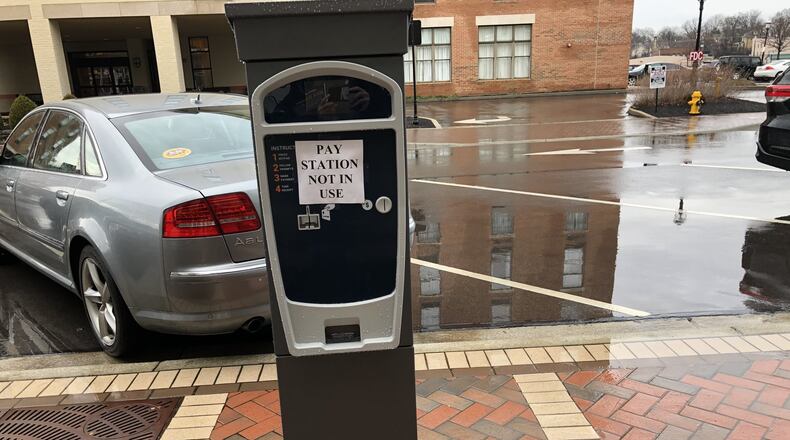The parking enforcement is not an effort to make money for the city, said Rich Engle, Hamilton’s director of engineering.
Parking enforcement is never a profit-maker for city government, he said: “It’s always a deficit for the city. We just want to make sure there’s spaces available a potential customer drives through High Street or Main Street, that we have parking spaces available.”
So far, new parking kiosks aren’t on Main Street, but that is being considered, Engle said.
The kiosks will charge 50 cents per hour, for a maximum of two or three hours, depending on the location. Parkers will be able to pay the meters using coins, credit cards and soon, an app called Passport, he said.
He said for shops and restaurants, it’s important to have a free flow of parking nearby so customers are encouraged to pull in to park. The two-hour parking limits enforced by the meters are intended to keep nearby residents and employees from using parking for long periods.
Parking will be enforced from 9 a.m. to 5 p.m., Monday through Friday. In addition to that, evening hours also will be enforced along Riverfront Plaza from 5 to 10 p.m., Thursday through Saturday, when nearby restaurants and bars have some of their busiest hours.
Fines for violations are $10, if the penalty is paid within 48 hours from midnight of the violation date the citation was issued. If it is paid between 48 and 96 hours afterward, the fine climbs to $20. After that, the fine climbs to $30.
The city will continue its use of the ‘Curbside Hamilton’ parking spaces in front shops and restaurants the city created early in the pandemic. Those areas, which are painted green, allow free parking for 10 minutes while people either park and wait for food and beverages either to be brought out to them or while they quickly go inside to make the pickups.
“We have those strategically placed all over the urban core,” said Mallory Greenham, small-business specialist for the city. “In fact, we’re getting ready to repaint those spots — some of them faded over the winter — and add a few more spots to places we think would benefit.”
Some of those spaces are along Main Street, in the downtown, in German Village, with another soon to be added in Lindenwald’s business district, Greenham said.
Each kiosk serves several parking spaces. After parking, people need to find the nearest kiosk and enter their license plate number before paying the parking fee.
The kiosks cost $85,000. City Manager Joshua Smith has said the city’s only goal financially is to recover costs of those kiosks plus their maintenance and costs of parking enforcement, not to make profits.
About the Author


